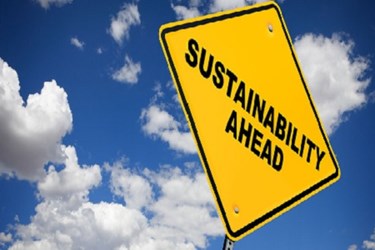How Nestlé Is Setting The Pace For Sustainability Efforts (Part Two Of Two)
By Isaac Fletcher, contributing writer, Food Online

The world's-largest food and beverage company is playing a significant role in addressing global food and sustainability issues such as poverty, food waste, and climate change
How Nestlé Is Setting The Pace For Sustainability Efforts, Part One discussed the way Nestlé is approaching sustainability and making long-term decisions. Nestlé’s vice president and global head of operations, José Lopez, sat down with The Washington Post to shed light on what needs to be done in order to address the world’s major, food-security issues. One of these issues is figuring out how to feed a growing global population while hunger and poverty still run rampant in many parts of the world. Lopez explains, “The first thing is, we need to stop waste. Food waste is an incredible and absurd issue for the world today. The numbers that come around are always in the neighborhood of 30 to 35 percent — meaning one-third of what is produced is wasted, which also has an environmental impact.”
While the Western world may view food waste as relatively inconsequential — food is just a small portion of disposable income — for developing countries, food is much-larger portion of disposable income. Lopez elaborates, “Unfortunately what happens is poorer countries can’t afford to waste food… Because of that waste, you have to raise prices, which people in those poorer countries, the ones who don’t have the money, then have to pay.” Due to these issues, major-food companies need to be unwilling to sacrifice long-term sustainability for the sake of short-term gains.
Food companies also have a responsibility to limit negative impact on the environment. While eliminating unnecessary food waste helps lessen the burden on growing systems, packaging is a major concern when discussing environmental impact. Lopez contends that the fact that packaging exists is not the problem, “The amount of food waste will multiply by who knows how much if we take away packaging from our food system. Instead, we need to sit back and understand that we have an issue with packaging, agree that we have an issue with caloric intake, especially attractive caloric intake because of branding, and take responsibility for improving the health status down the road.” He goes on to explain that companies have a responsibility not only to the health of the environment, but to the health of consumers as well, arguing, “We need to lower the amount of sugar and sodium we have in our food. We also have to apply a better understanding of nutrition and portion control.”
There is also a concern that developing countries, such as India and China, may end up suffering from many of the same health issues, like obesity, that hurt developed countries. Part of the onus of addressing this concern lands on the shoulders of major food companies. Lopez states, “We have to find solutions. Knowing what we know, we have to make sure that the products we sell are formulated in a way that will not induce excessive consumption or will not imply strict replacement of healthy food by less healthy food. We know how to make a more-balanced food, and also a more-balanced diet.”
However, there are other areas that desperately need attention in order to reduce the risk of obesity and other consumption-related health problems. “The most-important thing is education… The whole system requires a reset — from health professionals, from food companies, from the producers, but also from the media, and from all other stakeholders — because, the reality is that population will continue to increase, demands on the food system will continue to stress the system, and our collective lifestyles are driving climate change, which is putting even more stress on producing food. There is a real sense of urgency here on the need to align the positive impact that every stakeholder can have on this process.”
